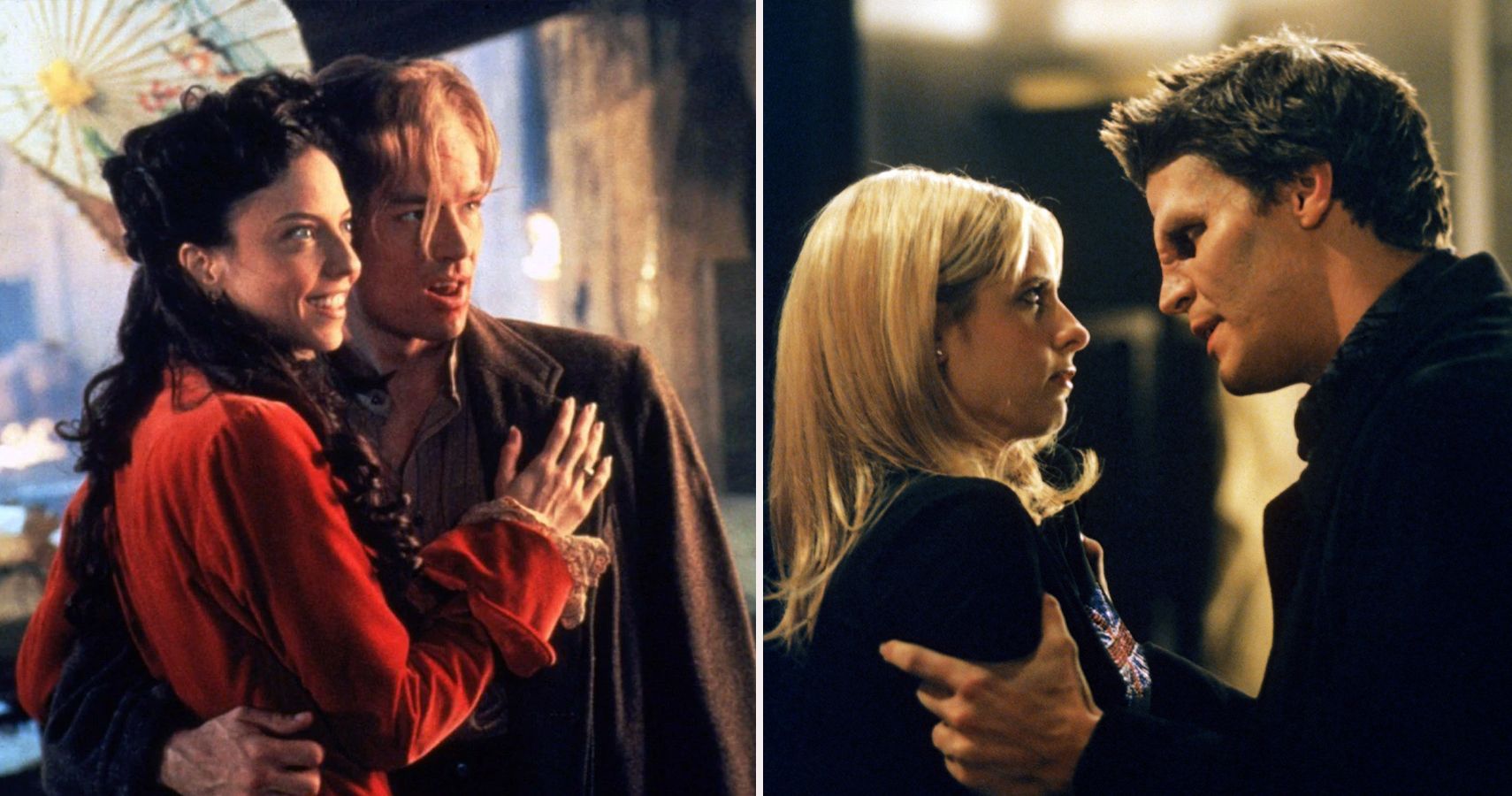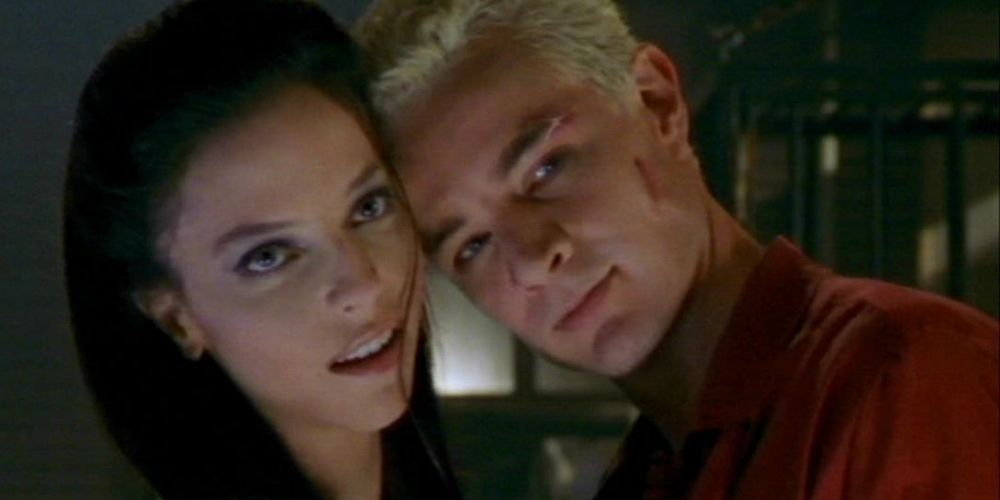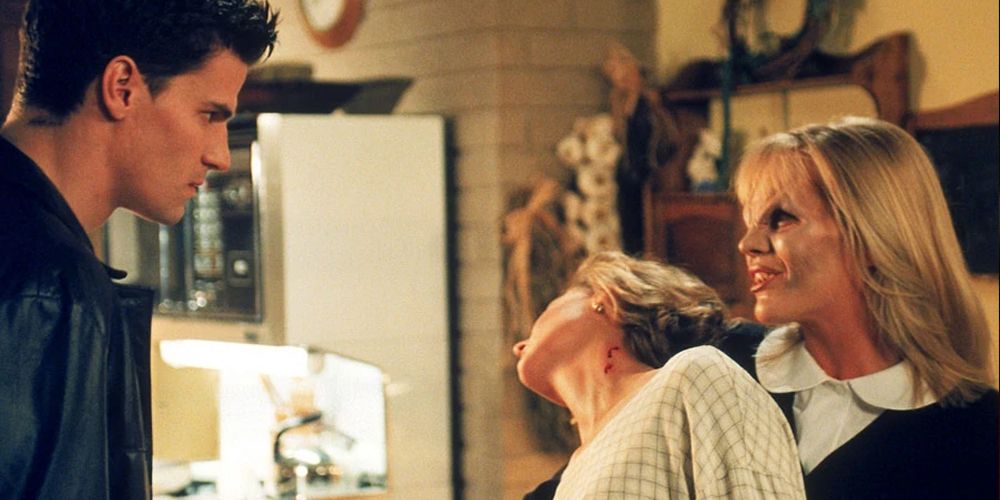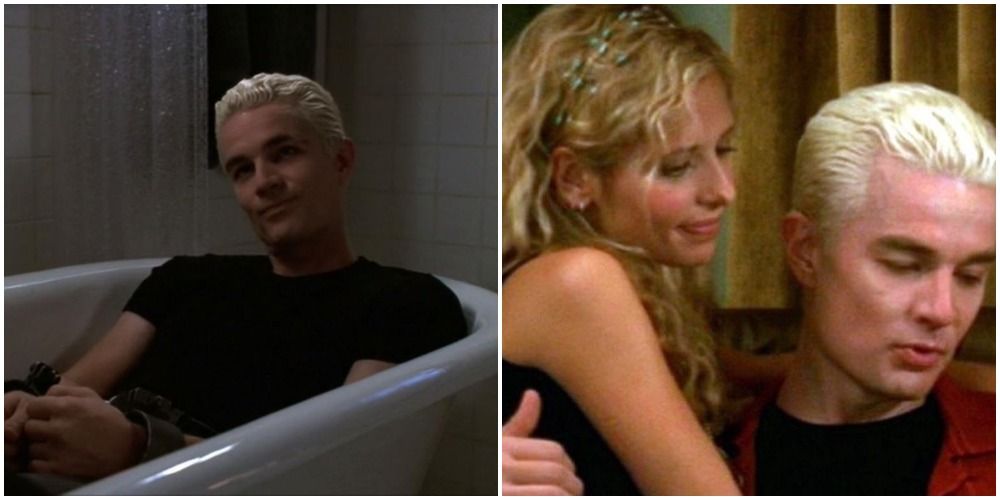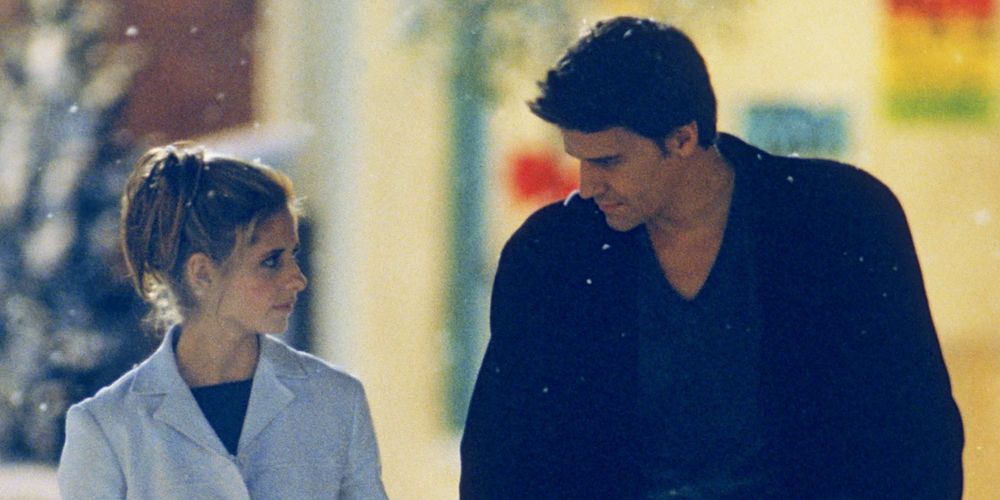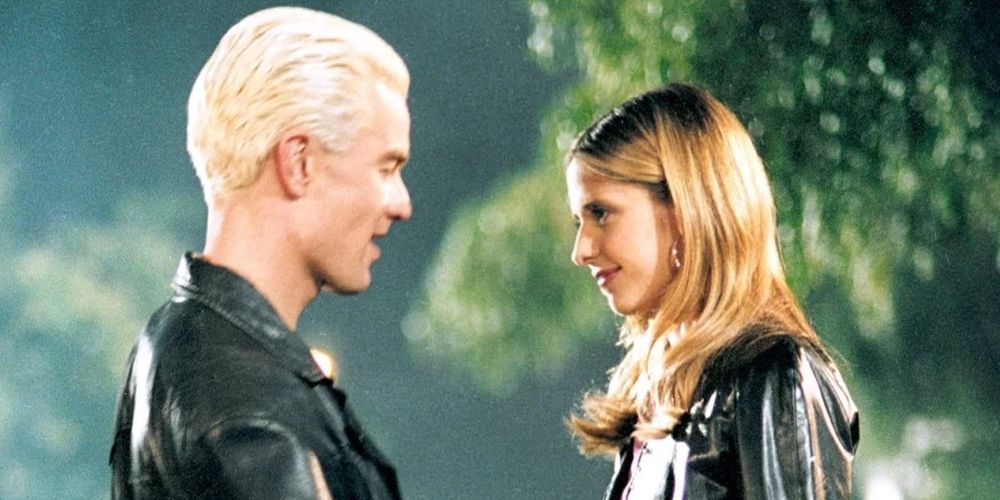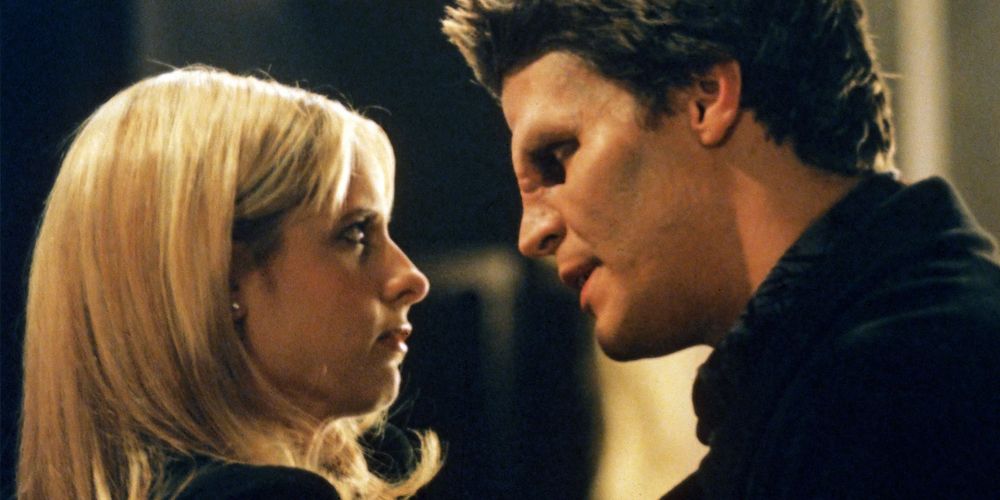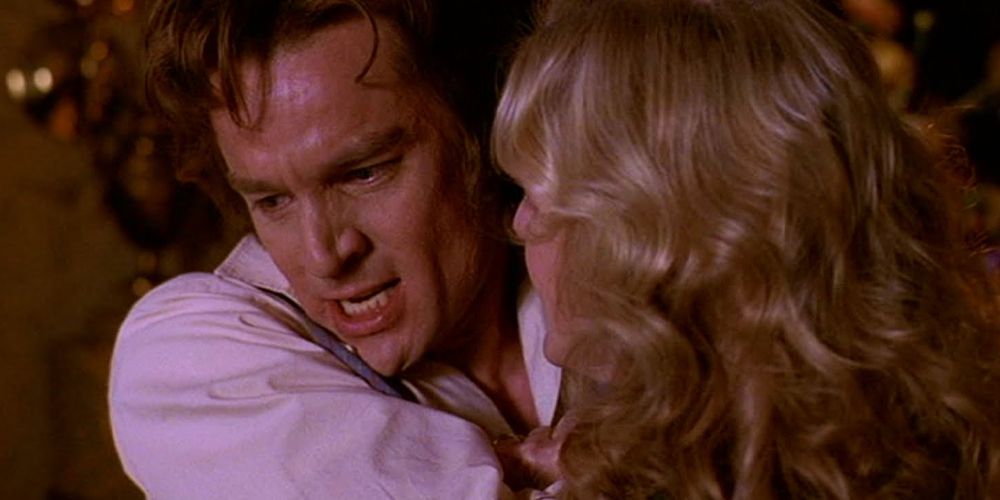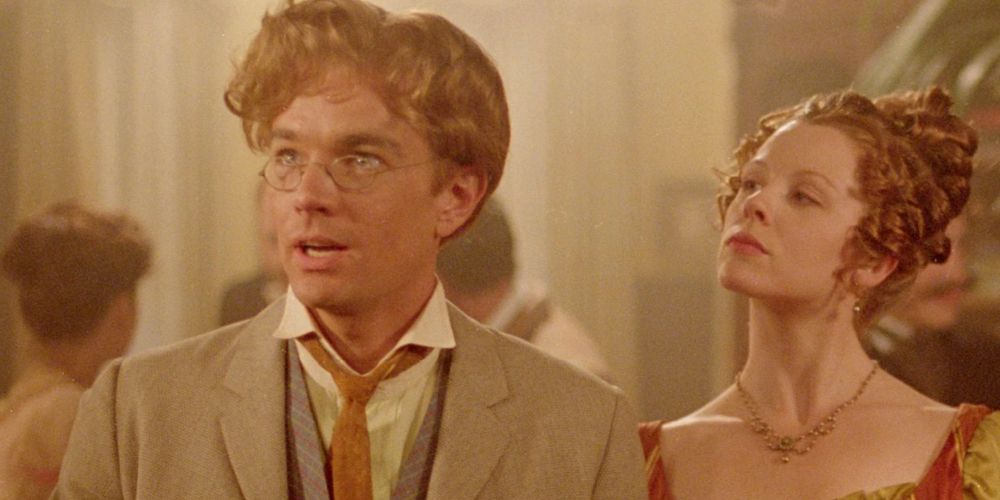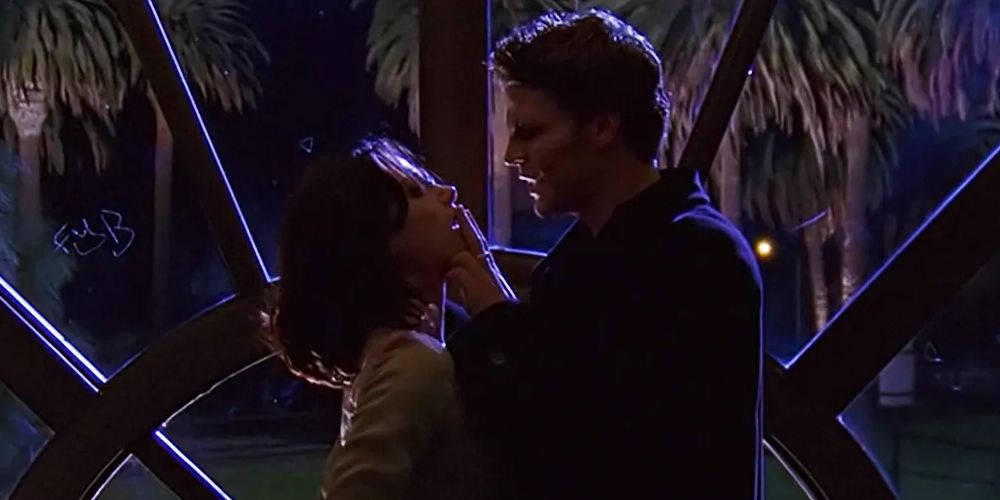Joss Whedon's Buffy the Vampire Slayer was a groundbreaking vampire-themed TV series that boasted great characters, well-written overarching storylines, creative standalone episodes, and like all of the one-liners. While the Scooby gang are undoubtedly iconic, the vampires in Buffy's life are arguably some of the most interesting figures on the show. Whether fighting to protect or destroy Sunnydale, Angel and Spike are nearly always entertaining.
Over the course of the show's run, both characters portray villains, love interests, soulless vampires, tortured heroes, and are occasionally utterly hilarious. Admittedly, Spike has Angel beat in the latter category. Here are Buffy the Vampire Slayer's best Spike-centric and Angel-centric episodes.
Just to be clear, these are not necessarily the best episodes featuring these characters in some form or another, but the ones that best showcase Spike and Angel's strengths as characters. Also, Angel's episodes include the ones featuring Angelus.
Spike: School Hard (Season 2, Episode 3)
To say that Spike hit the ground running would be an understatement. An argument can be made that "School Hard" represents the moment Buffy the Vampire Slayer hit its stride, as Spike arrived on the scene like a force of rebellious nature that sought to add another dead Slayer to his resume.
At this point, Spike still felt like a villain of the week, but his strangely affectionate relationship with Drusilla and lightly touched upon history with Angel suggested there was something more to this Billy Idol-esque vampire than meets the eye. More than anything, "School Hard" is just a blast to watch and represents Buffy the Vampire Slayer at its episodic best.
Angel: Angel (Season 1, Episode 7)
If "School Hard" saw Buffy the Vampire Slayer shake its early insecurities, season 1's "Angel" served as the first sign that Whedon's series could raise above its drive-in theatre horror movie roots. David Boreanaz's Angel was a somewhat uninteresting bore for the first few episodes, but "Angel" dives into the vampire's backstory and adds some much-needed context to the character's brooding nature.
This episode transforms Angel from a love interest into a three-dimensional personality, even if he would not begin to truly shine until season 2.
Spike: Something Blue (Season 4, Episode 9)
Something Blue is primarily a Willow episode, as the heartbroken witch-in-training casts a spell that causes everything she says to essentially come true. Naturally, things backfire spectacularly. While they might not be the instigators, the stars of the episode are the bewitched Spike and Buffy, who are transformed into betrothed lovers following a wayward comment by Willow.
Hilarious as their interactions are in the moment, including a proposal and various makeout sessions, Something Blue also foreshadows the pair's romance that later becomes a huge focus of the series.
Angel: Amends (Season 3, Episode 10)
By the time season 3 rolled around, it was clear that Buffy and Angel's romance was a dead end. However, Buffy the Vampire Slayer still gives the couple a few touching moments, with "Amends" being one of the highlights.
As for Angel, "Amends" sees the vampire dealing with the guilt and personal demons brought on by his villain0us turn as Angelus in season 2, a therapy session sponsored by the First Evil.
Spike: Intervention (Season 5, Episode 18)
Season 5's second half is defined by high stakes and emotionally exhausting storylines, with Buffy the Vampire Slayer showcasing its mastery at telling both supernatural and grounded narratives. "Intervention" is a somewhat lighter affair, as Spike's obsession over Buffy leads to him commissioning the creation of the Buffyboy, a robot right out of the Stepford Wives. This leads to Spike being kidnapped by Glory's goons who mistake the bot's devotion as a sign that the vampire could be the key to opening a portal to another dimension.
The Buffybot is hilarious and, unsurprisingly, has great chemistry with Spike, who manages to be funny, creepy, likable, sympathetic, and pathetic all at the same time. The final scene between Spike and the real Buffy is also one of the pair's most crucial moments, as Buffy realizes that Spike's feelings are twisted but real.
Angel: Enemies (Season 3, Episode 17)
When Faith and the Mayor plot to rob Angel of his soul once again, the vampire and Buffy plan a ruse to trick the pair into believing that Angelus is back. Consequently, Angel plays the part of the double agent. Even if it is all pretend, it is thrilling to have Angelus back for a short spell, while the reveal at the end is expertly done.
"Enemies" is also a solid showcase of Boreanaz's talent as an actor, proving just how far he had come since the show's early days. "Enemies" also illustrates the thin line that separates Angel from Angelus, as they are just two sides of the same coin.
Spike: Lies My Parents Told Me (Season 7, Episode 17)
Season 7 is not regarded as one of Buffy the Vampire Slayer's greatest seasons, but it does have a couple of memorable episodes. This is one of them. "Lies My Parents Told Me" centers around human Spike's unhealthy relationship with his mother, exploring his romantic yearnings prior to his rebirth as a vampire.
The episode also explains Robin Wood's hatred for the recently re-ensouled Spike, as the latter had killed the former's mother. The flashbacks are crucial to fully understanding Spike's psyche and personality, while "Lies My Parents Told Me" also features a memorable fight between Wood and the vampire.
Angel: Innocence (Season 2, Episode 14)
"Innocence" introduces Angelus to the world in all of his sadistic glory, as the vampire cursed with a soul reverts back to the monster whose horrendous deeds causes him to be defanged in the first place. Despite still centering around vampires, "Innocence" feels completely different to anything that came before it; Angelus gets under Buffy's skin like no other character ever really manages, including the one that temporarily switches bodies with the Slayer.
Angelus also justifies Angel's existence, as seeing the soulless vampire in the flesh goes a long way in explaining the latter's tendency to self-sacrifice.
Spike: Fool For Love (Season 5, Episode 7)
"Fool For Love" is the definitive Spike episode and also features the best flashbacks in Buffy the Vampire Slayer, not counting its sister series Angel. While the show had already shown that Spike was far from an ordinary vamp, "Fool For Love" dives into his backstory to illuminating effect.
James Marsters delivers one of his best performances as he gets to portray different versions of his beloved character, be it an '80s punk rocker or William Pratt, the timid romantic that would eventually become Spike.
Angel: Passion (Season 2, Episode 17)
In Buffy the Vampire Slayer, Angel's most interesting run coincided with his turn as Angelus. While Spike made for a fun and inherently watchable villain, Angelus was genuinely frightening as he sought to psychologically torture his victims. While "Innocence" marked a turning point for both the series and the character, "Passion" established that Angel's change was not something that could merely be reversed without consequences. In Buffy the Vampire Slayer, prominent characters can die.
Angelus hunting down Jenny through Sunnydale High School's corridors could be slotted into any (great) slasher movie, while the vampire leaving her body for Giles to discover is cruel in a way that only the passionately evil could accomplish.

